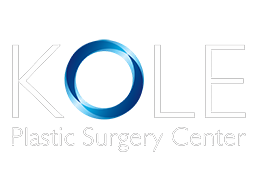Get Rid of Stubborn Fat for Good with CoolSculpting®
CoolSculpting® or cryolipolysis, is a cosmetic treatment designed to help you achieve your body contouring goals—with no surgery and little to no downtime. It is a
CoolSculpting® or cryolipolysis, is a cosmetic treatment designed to help you achieve your body contouring goals—with no surgery and little to no downtime. It is a

More people are choosing cosmetic surgery than ever before between the increasing variety of procedures available and the growing cultural acceptance of plastic surgery. While

Why is everyone talking about QWO (a.k.a. collagenase clostridium histolyticum-aaes), a new treatment that recently received FDA approval to treat cellulite in the buttocks of

[vc_row][vc_column][vc_column_text]Liposuction is one of the most common cosmetic treatments performed in the US. It involves suctioning out diet and exercise-resistant fat from areas such as

[vc_row][vc_column][vc_column_text]Statistics are proving over recent years that men are getting plastic surgery in increasingly rising numbers. The taboo of men getting procedures or “work done”

Nose job surgery, also known as Rhinoplasty, is one of the top five requested and performed cosmetic procedures in the U.S.. A Rhinoplasty fixes the

That’s right, the holiday season is an optimal time to get liposuction. The Summer has come and gone, and with it, the need to be

Tattoos are everywhere (literally) and it seems like everyone has them. According to some estimates, over 50% of all the women and nearly half of

Do you want fuller lips? Do you wish you had those kissable, big movie star lips you see in magazines and on Instagram? Has genetics

For over 50 years now, plastic surgeons have been performing breast implant surgery. Today, breast augmentation stands as the most popular type of cosmetic surgery
Take advantage of great savings each month on a variety of services and procedures to make it easier to find your new look.
If you need more information, please feel free to call our offices, or use our contact form to schedule a Complimentary Consultation with Dr. Edward Kole.

215-315-7655
Kole Plastic Surgery Center
We firmly believe that the internet should be available and accessible to anyone, and are committed to providing a website that is accessible to the widest possible audience, regardless of circumstance and ability.
To fulfill this, we aim to adhere as strictly as possible to the World Wide Web Consortium’s (W3C) Web Content Accessibility Guidelines 2.1 (WCAG 2.1) at the AA level. These guidelines explain how to make web content accessible to people with a wide array of disabilities. Complying with those guidelines helps us ensure that the website is accessible to all people: blind people, people with motor impairments, visual impairment, cognitive disabilities, and more.
This website utilizes various technologies that are meant to make it as accessible as possible at all times. We utilize an accessibility interface that allows persons with specific disabilities to adjust the website’s UI (user interface) and design it to their personal needs.
Additionally, the website utilizes an AI-based application that runs in the background and optimizes its accessibility level constantly. This application remediates the website’s HTML, adapts Its functionality and behavior for screen-readers used by the blind users, and for keyboard functions used by individuals with motor impairments.
If you’ve found a malfunction or have ideas for improvement, we’ll be happy to hear from you. You can reach out to the website’s operators by using the following email
Our website implements the ARIA attributes (Accessible Rich Internet Applications) technique, alongside various different behavioral changes, to ensure blind users visiting with screen-readers are able to read, comprehend, and enjoy the website’s functions. As soon as a user with a screen-reader enters your site, they immediately receive a prompt to enter the Screen-Reader Profile so they can browse and operate your site effectively. Here’s how our website covers some of the most important screen-reader requirements, alongside console screenshots of code examples:
Screen-reader optimization: we run a background process that learns the website’s components from top to bottom, to ensure ongoing compliance even when updating the website. In this process, we provide screen-readers with meaningful data using the ARIA set of attributes. For example, we provide accurate form labels; descriptions for actionable icons (social media icons, search icons, cart icons, etc.); validation guidance for form inputs; element roles such as buttons, menus, modal dialogues (popups), and others. Additionally, the background process scans all the website’s images and provides an accurate and meaningful image-object-recognition-based description as an ALT (alternate text) tag for images that are not described. It will also extract texts that are embedded within the image, using an OCR (optical character recognition) technology. To turn on screen-reader adjustments at any time, users need only to press the Alt+1 keyboard combination. Screen-reader users also get automatic announcements to turn the Screen-reader mode on as soon as they enter the website.
These adjustments are compatible with all popular screen readers, including JAWS and NVDA.
Keyboard navigation optimization: The background process also adjusts the website’s HTML, and adds various behaviors using JavaScript code to make the website operable by the keyboard. This includes the ability to navigate the website using the Tab and Shift+Tab keys, operate dropdowns with the arrow keys, close them with Esc, trigger buttons and links using the Enter key, navigate between radio and checkbox elements using the arrow keys, and fill them in with the Spacebar or Enter key.Additionally, keyboard users will find quick-navigation and content-skip menus, available at any time by clicking Alt+1, or as the first elements of the site while navigating with the keyboard. The background process also handles triggered popups by moving the keyboard focus towards them as soon as they appear, and not allow the focus drift outside it.
Users can also use shortcuts such as “M” (menus), “H” (headings), “F” (forms), “B” (buttons), and “G” (graphics) to jump to specific elements.
We aim to support the widest array of browsers and assistive technologies as possible, so our users can choose the best fitting tools for them, with as few limitations as possible. Therefore, we have worked very hard to be able to support all major systems that comprise over 95% of the user market share including Google Chrome, Mozilla Firefox, Apple Safari, Opera and Microsoft Edge, JAWS and NVDA (screen readers).
Despite our very best efforts to allow anybody to adjust the website to their needs. There may still be pages or sections that are not fully accessible, are in the process of becoming accessible, or are lacking an adequate technological solution to make them accessible. Still, we are continually improving our accessibility, adding, updating and improving its options and features, and developing and adopting new technologies. All this is meant to reach the optimal level of accessibility, following technological advancements. For any assistance, please reach out to
Patients often have many questions and concerns before their first plastic surgery consultation. This heading addresses what individuals can expect during these initial meetings with the surgeon, helping to set appropriate expectations and ease any anxieties.
During a consultation, the surgeon will thoroughly examine the patient, discuss their goals and desired outcomes, and provide recommendations for the most suitable procedures. Patients can also expect to receive information on the surgical process, recovery timeline, and potential risks or complications.
Paying for cosmetic treatments can be a significant concern for many patients. This heading focuses on the various financing options available to make plastic surgery more accessible.
The plastic surgery center may offer in-house financing plans, as well as recommendations for third-party lenders that specialize in elective medical procedures. Patients can also explore their health insurance coverage to determine if any portion of the costs may be eligible for reimbursement.
Not all cosmetic concerns require invasive surgical interventions. This heading highlights the range of nonsurgical treatments that can provide aesthetic improvements without the need for anesthesia or extended recovery periods.
Options such as dermal fillers, neurotoxins, laser treatments, and chemical peels can address a variety of concerns, from wrinkles and volume loss to skin discoloration and texture issues. These minimally-invasive procedures often have shorter downtime compared to surgical options.
To ensure the best possible outcomes, patients must properly prepare for their plastic surgery procedures. This heading outlines the steps individuals should take in the weeks and days leading up to their scheduled surgery.
Recommendations may include adjusting medications, quitting smoking, and avoiding certain supplements. Patients should also arrange for transportation and assistance during the initial recovery period. Proper preparation can help minimize risks and optimize the surgical results.